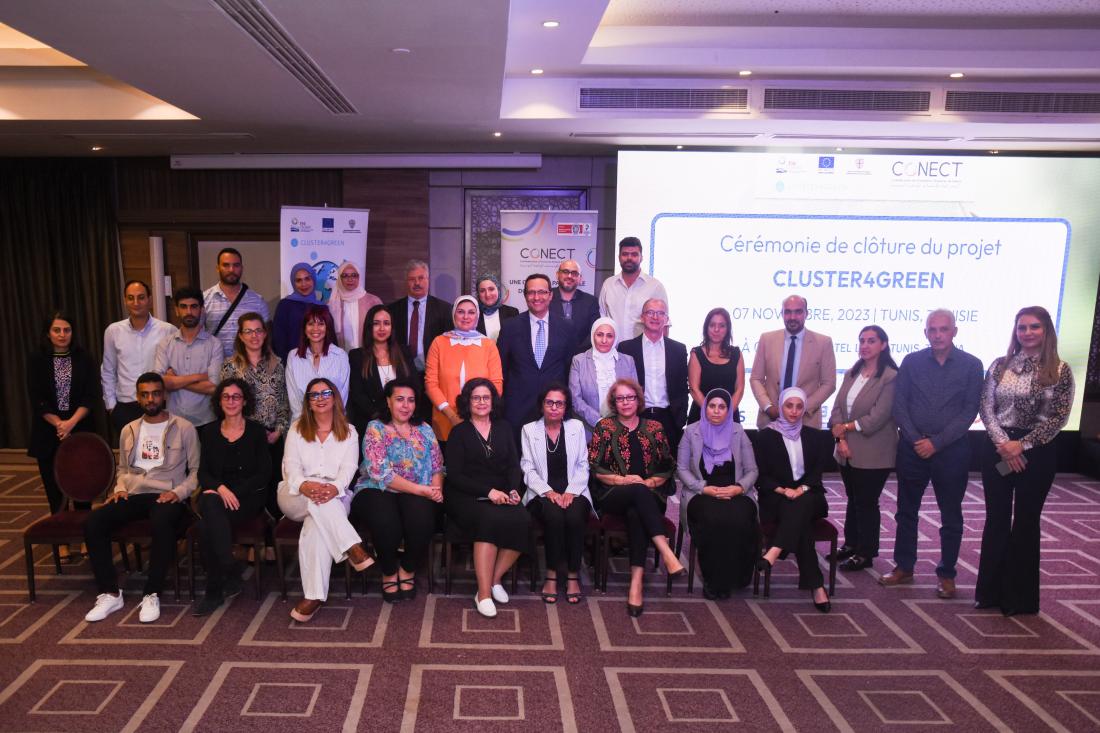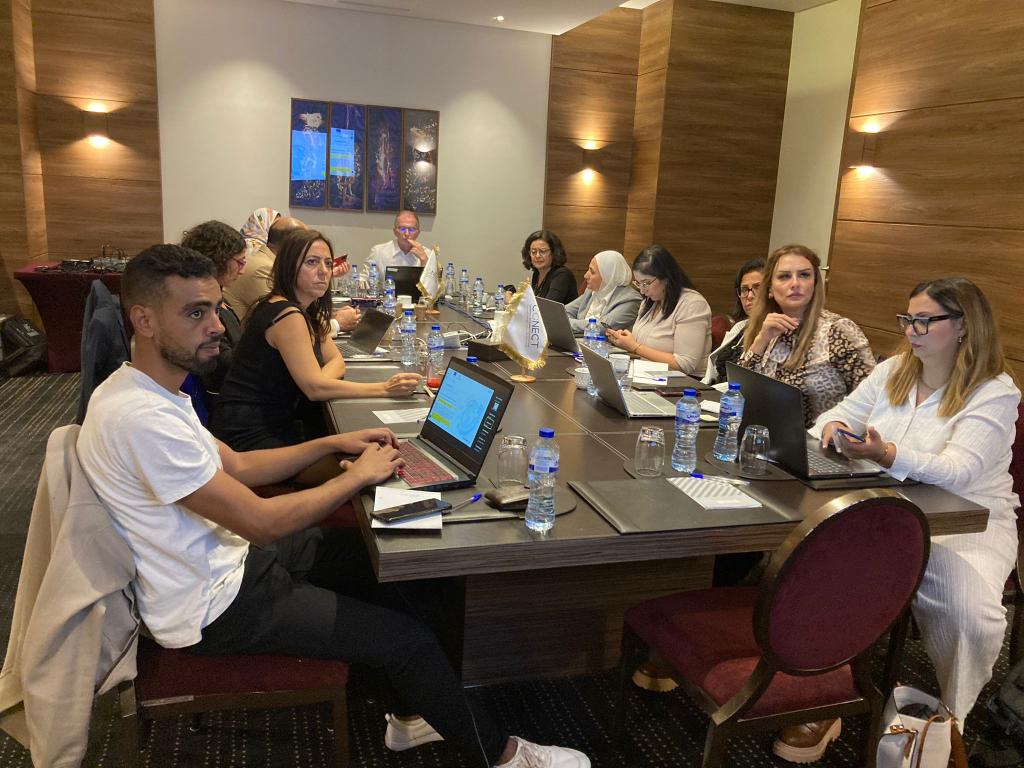Newest Circular Business Models on discussions during the closure event of CLUSTER4GREEN in Tunisia

BIC Euronova participates in Tunisia in the final event of the European project Cluster4Green, of which it is a partner and whose objective is the development of the circular economy in Mediterranean countries. The European project CLUSTER4GREEN Project, of which BIC EURONOVA, the European Business and Innovation Center of Málaga based in Málaga TechPark, is a partner, aims to create economic opportunities through the promotion and development of the Mediterranean circular economy.
During yesterday and today BIC Euronova, as the only Spanish partner of Cluster4Green, along with the rest of the partners from France, Italy, Lebanon, Jordan, Egypt and Tunisia, met in Tunisia to participate in the final event that closed with great success the execution of Cluster4Green, after two intense years of work.
During the meeting, all the actions carried out as a basis for the objective of the aforementioned European project were addressed, which is to establish sustainable models based on the concept of circular economy and the capitalization of previous projects. Circular Business Models that describe the logic of how an organization creates, offers and delivers value to all stakeholders, while maximizing social benefits and the regeneration of natural ecosystems. This is exactly the approach that the Cluster4Green project will take when transferring knowledge and coaching skills in the Mediterranean area.

During the closing event held in Tunis, the awareness-raising and training programs, as well as the business modeling approach, which have been prepared for two years by the project partners, were presented and discussed. Cluster4Green's awareness campaigns are expected to boost institutional capacity and cooperation among SMEs, while the training program (training, mentoring and coaching for SMEs) aims to increase the business community's knowledge of business models. circular economy business and its application.
The process of creating two synergistic and interrelated aggregations of stakeholders has also been presented and discussed: the Cluster4Green Network and the Cluster4Green Capitalization Hub. The latter will act as a common aggregator of green business initiatives in the northern and southern Mediterranean basins. The Hub will promote cooperation and knowledge transfer actions on the three pillars of CLUSTER4GREEN: public strategic approaches towards the Circular Economy; innovative circular economy business models, as well as public and private investments. In addition, the Hub will aggregate and disseminate the results of related initiatives to key stakeholders and public authorities.
Circular business model
Analyzing each of the 55 most recognizable business design patterns used in the market (classified by the University of Saint Gallen in Switzerland), it is concluded that to achieve a circular business model, 3 factors are needed:
- The model must incorporate at least one of the circularization strategies.
- The organization has a real intention to improve its environmental performance on a continuous basis.
- The new circular model (future) effectively has a lower environmental impact than the conventional one, which must be demonstrable with a Life Cycle Analysis (LCA).
Therefore, the Circular Economy is built from a more holistic design that promotes the search for new business models better adapted to the context of the 21st century and its environmental and social challenges.









